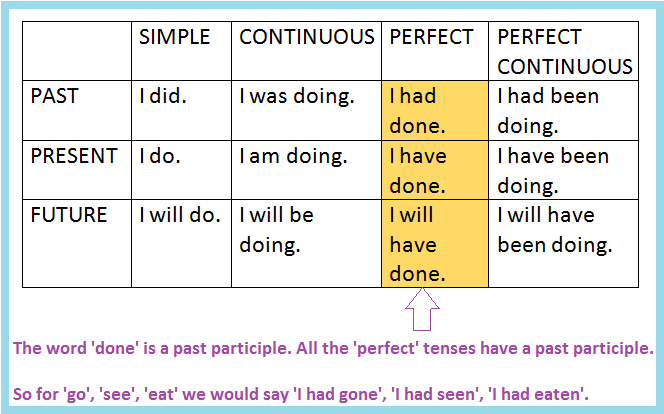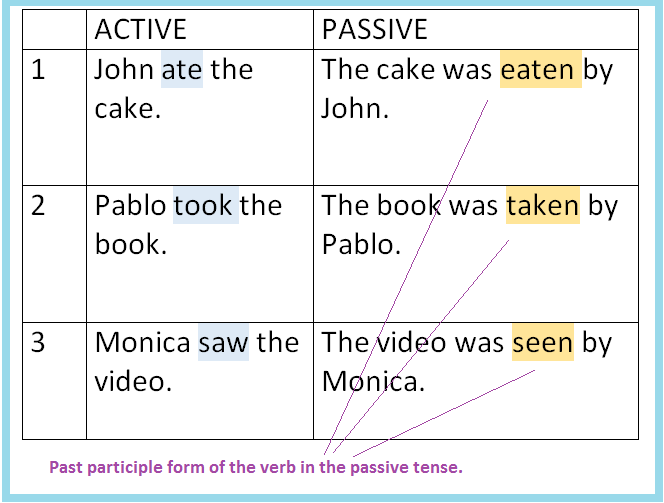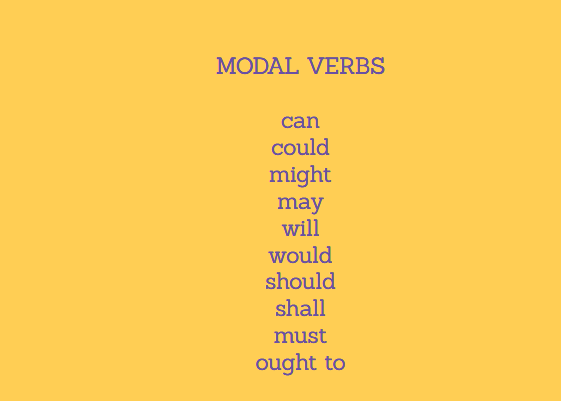To know what a past partciple is we need to know what verbs are. Past participles are a type of verb.
What is Verb ?
A verb is usually an action.
So for example:
‘go’, ‘buy’, ‘eat’, ‘write’ all of these are verbs.
Verbs can also be something which is not an action but a state or a state of being, such as be (and its forms such as ‘am’, ‘are’, ‘is’ and ‘was’, ‘were’), ‘exist’ are not actions but are still verbs, though most verbs are actions.
English Verb Tree
One of the reasons why English is easier than some other languages is that in English the verb does not change for the person, for example you would say ‘I went’ and ‘You went’. However in Spanish, ‘I went’ would be ‘yo (I) fui (went)’ that is ‘yo fui’, but ‘you went’ would be ‘tu (you) fuiste (went).
So in Spanish ‘went’ for I would be ‘fui’ and for you would be ‘fuiste’, whereas in English it always stays the same.
There are four forms of the verb in English.
- Infinitive: The infinitive is ‘to do’, or ‘to go’. Without the word ‘to’ it is called the ‘bare infinitive’. It is also called the root form or stem or base form. For example ‘I go to school every day’.
- The past simple is the form of the verb used in the past. For example ‘I went to school yesterday.’
- The present participle is the form of the verb used in continuous tenses when something is happening at a certain time e.g. ‘I am going to school now.’ or ‘I will be going to school tomorrow morning.’ The present participle always ends in ‘...ing‘. Because you just add ‘ing’ to the original form of the verb and it is easy, it is often not mentioned in grammar books.
- The past participle is the form of the verb which is used in sentences such as ‘I have gone.’ or ‘I have spoken to him.’ The ‘past participle’ is used in both the past perfect and present perfect tenses, so watch the following two videos to understand what they are:


The Past participle for passive sentences.
The past participle is also used in passive sentences.
Most sentences in English are active sentences.
In active sentences we say the name of the person or thing that does the action in the beginning of the sentence.
For example – ‘Peter wrote the book’.
Peter is the ‘agent’, the person/thing that did the action. The ‘agent’ is at the beginning of an active sentence. Over 90% of sentences in English are active.
In a passive sentence the agent is either at the end of the sentence or not there at all. So in a passive sentence we would say ‘The book was written by Peter.’
Not only would we change the word order but we would change the verb from ‘wrote’ to ‘written’.
‘Written’ is the past participle form.
So in active form we would say:
- John ate the cake.
- Pablo took the book.
- Monica saw the video.
In passive it would be:
- The cake was eaten by John.
- The book was taken by Pablo.
- The video was seen by Monica.
So ‘ate’ becomes ‘eaten’, ‘took’ becomes ‘taken’, ‘saw’ becomes ‘seen’.
‘Eaten’, ‘taken’, ‘seen’ are the past participle forms of these words.
Modals in the past
The past participle can also be used in sentences with modals.
We put ‘have’ after the modal verb and then the past participle. Here are examples.
- He can’t have taken the pen, he wasn’t there that day.
- She could have seen him, she was there in the morning.
- He might have stolen it, he is not an honest person.
- They may have removed it, we don’t know.
- He would have paid for it, if he had the money. (this is actually a 3rd conditional, more on that later).
- You should have studied harder, you were lazy!
- He must have written that graffiti there, no one else was there!
- You ought to have arrived earlier!
All the sentences above are for speculation except for 5, 6 and 8.
Sentences 6 and 8 are forms of advice about past actions. We can also use ‘could have’ for advice. For example ‘ You could have taken the train to get there earlier.’
We cannot use ‘will’ or ‘shall’ for past speculation or advice about past events.
Past participles in 3rd conditional sentences.
Third conditional sentences are sentences we use to talk about past events. They are separated in to two parts. The first part is what we could have done or not done. The second part is what the outcome would have been. So ‘If you had studied harder, you would have passed the exam.’ In both sections we use the past participle.
For example.
If you had written the email earlier, they would have given you a refund.’
‘Written’ in the first part (or clause) of the sentence is a past participle’, ‘Given’ in the second clause is a past participle.
You could not say, ‘If you had wrote the email earlier, they would have gave you a refund’. You must use a past participle in both clauses.
In the first clause which begins with the word ‘if’, you have to use the word ‘had’ before the past participle.
Examples:
1. If I had seen him, I would have said ‘hi’ to him.
2. If I had spoken to her nicely, she would have helped me.
Participle sentences
In more sophisticated English, the past participle can be used at the beginning of the sentence.
For example: ‘Beaten by the other team, the footballers walked back to the dressing room sadly.’
The simpler way of saying this would be:
‘The footballers were beaten by the other team and then they walked back to the dressing room sadly.’
It’s a simpler structure but may not sound as ‘elegant’. In this simpler structure you clearly mention the subject of the action in the first part of the sentence. In the participle sentence you do not have to mention the subject (the football team).
Here are some other examples:
‘Taught by the best tutors in the world, Pedro became an excellent student.’
‘Spoken to nicely by her teacher, Yasmin decided to study hard.’
Summary – So these are the ways we can use the participle verb in English.
- Perfect tenses: past perfect, present perfect, future perfect.
- Passive sentences.
- Modals in the past.
- Third conditional
- Participle sentences.
If you have any questions or comments ask below!



